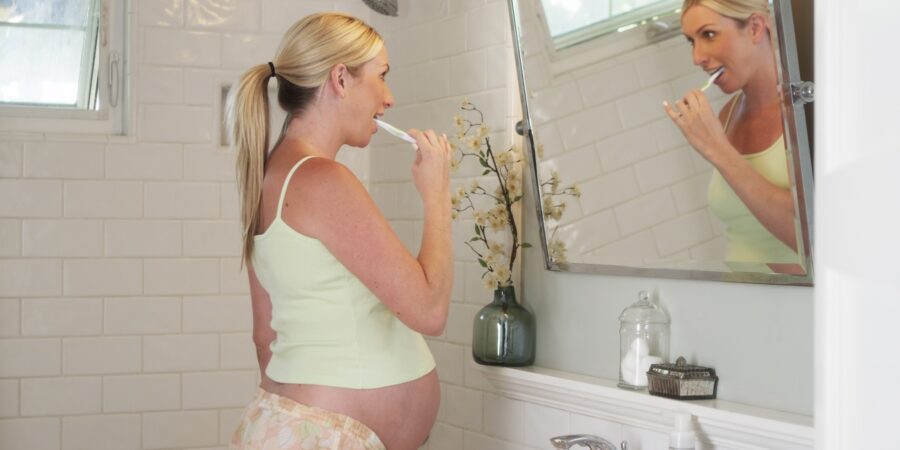



Healthy teeth of pregnant women
May 20, 2019
Pregnancy is a special state in a woman's life, but it is not good for her teeth. What to look out for during pregnancy and how often to visit a doctor? Advice is provided by dentist Agnieszka Gładysz from NZOZ "Twój Lekarz".
During pregnancy, special attention should be paid to proper oral hygiene, because caries and periodontal disease can negatively affect the development of the fetus, causing, among other things, low birth weight and premature birth. The basic hygiene procedure is toothbrushing. During pregnancy, this is often difficult due to bleeding gums caused by the dilation of blood vessels in the gums as a result of changed hormonal balance. However, despite bleeding or pain, brushing should not be skipped. This can result in plaque accumulation, which causes tartar to build up.
Professional cleaning
If tartar appears, you should go to a visit and have your teeth professionally cleaned. You can also include chamomile or sage rinses, which will help alleviate symptoms of inflammation, or ready-made preparations available for sale.
Brushing should be done at least 2 times a day after meals for 3 minutes. After brushing, it is necessary to gently (!) clean all interdental spaces with dental floss. This will prevent plaque from building up between the teeth.
A few rules to remember
If a woman experiences nausea and vomiting, she should rinse her mouth with water and baking soda and postpone brushing for about half an hour to minimize the risk of erosion, or washing out.
- A pregnant woman should visit a dentist for check-ups at least twice – in the 3rd and 8th month. If treatment is necessary, it should be started. Dental treatment can be carried out throughout pregnancy, but the second trimester is most beneficial.
- Conservative treatment may be performed under local anesthesia with preparations generally used in dentistry, unless the woman has individual contraindications to anesthesia.
- The stress associated with severe toothache during pregnancy has a worse effect on the fetus than the anesthesia itself.
- Root canal treatment is also not contraindicated, as inflammation of the tooth pulp may affect the fetus worse than the treatment undertaken.
- Taking an X-ray is only permissible in cases of necessity, when the woman's health or life is at risk. In such cases, it is necessary to ensure that the woman's abdomen is properly protected using a special apron. Currently used devices and modern dental microscopes allow for treatment without the need for X-ray.
- Tooth extraction should also be performed in the second trimester.
- Prosthetic and aesthetic treatments should be postponed until delivery.
RESOLUTIONS VERSUS REALITY #01 — When does your body signal that it's time to change your lifestyle?
How to recognize the first signs of metabolic problems before illness develops? A discussion about fatigue, weight, insulin resistance, and the role of tests in assessing health. The guest of this episode is diabetologist Dr. Włada Radzewicz.
Who we are
In our work, we are guided by the idea of a family doctor who provides the patient with comprehensive care at all times, not only when they are ill. Our mission is to take care of the health of residents on a daily basis. We provide health education and promote prevention.
Copyright © Wrocław 2021 NZOZ Your Doctor Sp. z o. o. All Rights Reserved.
Website created by KomuKoncept: www.komukoncept.pl






